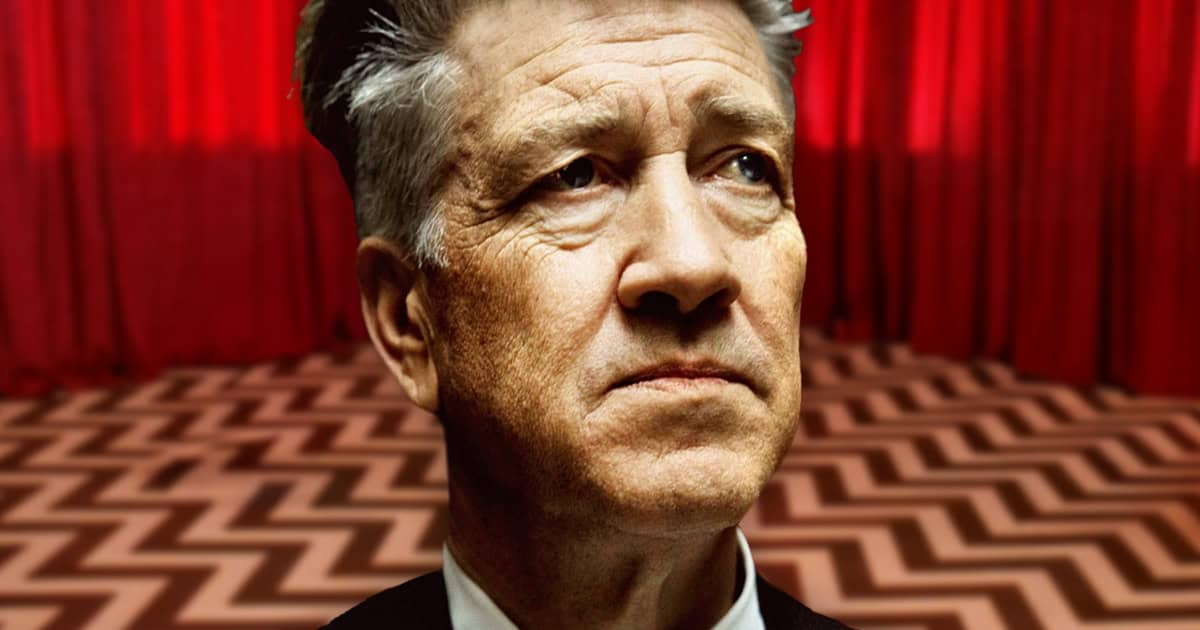https://www.youtube.com/watch?v=MyUbBm8lIOo[/embed>
On January 15th, 2025, the world of cinema suffered a profound loss with the passing of David Lynch, a visionary who had a remarkable ability to transform dreams into compelling films. He left us at the age of 78, having dedicated decades to showcasing the immense power of storytelling. Lynch’s works often explored the raw and emotional threads that weave through the human experience, presenting narratives that were both haunting and beautiful, often straddling the line between nightmare and reality. His unique style and perspective revolutionized modern film and will continue to inspire future generations of filmmakers and artists.
Not merely a filmmaker, David Lynch was a true artist and a dreamer whose creative endeavors often extended beyond the silver screen. Born on January 20, 1946, in Missoula, Montana, Lynch initially pursued a career in painting before his passion for storytelling through motion pictures took hold. His films frequently blurred the lines between dreams and reality, immersing viewers in deeply personal narratives that often left them bewildered yet captivated. Lynch’s work is characterized by its distinctive ability to evoke profound emotions, inviting audiences to explore the intricate layers of human experience.
My personal journey into Lynch’s cinematic universe began with the enigmatic film Lost Highway, a serendipitous discovery that resonated with me on multiple levels. The film’s atmospheric soundtrack, rather than its trailers, drew me in, encapsulating a blend of darkness, confusion, and allure. It was a mesmerizing experience that compelled me to delve deeper into Lynch’s world, a realm where reality is often obscured by dreamlike elements. This fascination prompted me to explore his earlier works, starting with his debut masterpiece, Eraserhead.
Explore the Nightmarish Reality of Eraserhead (1977)

David Lynch’s first feature film, Eraserhead, epitomizes the essence of cult cinema. Crafted over five years on an extremely limited budget, this surreal and nightmarish film delves into themes of anxiety, isolation, and the complexities of fatherhood. With its haunting visuals and unforgettable sound design, Eraserhead not only showcased Lynch’s distinctive artistic vision but also laid the groundwork for his future cinematic endeavors. While I consider it one of his most exceptional works, it remains an emotionally intense viewing experience that I can only engage with sporadically due to its heavy themes.
Uncover the Humanity in The Elephant Man (1980)

Without the groundbreaking Eraserhead, Lynch might not have ventured into his second feature, The Elephant Man, which marked his significant breakthrough into mainstream cinema. This poignant film, inspired by the life of Joseph Merrick, is a heartfelt exploration of human dignity and compassion, featuring stellar performances by William Hurt and Anthony Hopkins. Interestingly, the script originally caught the attention of Mel Brooks, who was captivated by its potential and sought to produce it. After witnessing Eraserhead and being enamored with Lynch’s vision, Brooks believed Lynch was the perfect director for this emotionally resonant narrative. Although The Elephant Man is more conventional by Lynch’s standards, his unique visual storytelling and emotional depth shone through, earning him an Academy Award nomination for Best Director.
Experience the Epic World of Dune (1984)

Growing up as a fan of Star Wars, I initially assumed Dune was merely derivative, a perception that persisted until I explored it in my twenties. Lynch’s adaptation of Frank Herbert’s sci-fi classic was a significant leap into the realm of blockbuster filmmaking for him. Despite facing considerable studio interference during production, Dune unmistakably bears Lynch’s hallmark vision. The film’s expansive sets, surreal imagery, and innovative world-building showcased Lynch’s ability to create stunning visuals even under tight constraints. While Dune faced mixed reviews upon release, it has since cultivated a dedicated fanbase who appreciate Lynch’s unique interpretation of Herbert’s universe. Personally, I value it for its artistic merits, though it’s one of the few Lynch films I have only viewed once.
Delve into the Dark Allure of Blue Velvet (1986)

My initial encounter with Lynch’s work was unexpectedly through the film Bio-Dome, where he made a cameo that went over my head at the time. However, few films encapsulate Lynch’s brilliance quite like Blue Velvet. At first glance, it appears to be a small-town mystery, but as the narrative unfolds, it reveals a far darker reality. Lynch masterfully contrasts the seemingly idyllic suburban life with its lurking, sinister undercurrents, creating a captivating film that is both unsettling and thought-provoking. Dennis Hopper‘s chilling performance adds to the film’s tension, serving as the perfect foil to Kyle MacLachlan, who navigates the treacherous waters of a small-town secret.
Embark on a Wild Journey with Wild at Heart (1990)

Wild at Heart showcases Lynch at his most audacious and unrestrained. This road movie, featuring Nicolas Cage and Laura Dern, skillfully weaves together themes of violent crime, passionate romance, and surreal fantasy into a captivating narrative. Adapted from Barry Gifford’s novel, the film presents a chaotic yet heartfelt portrayal of love amidst danger. Among his extensive filmography, the ending of Wild at Heart stands out as my favorite, with Cage’s Sailor tenderly singing ?Love Me Tender? to Dern’s Lula?a beautiful moment that encapsulates the film’s wild spirit. Although it faced harsh criticism during test screenings, it ultimately won the Palme d?Or at the Cannes Film Festival, solidifying Lynch’s reputation as one of cinema’s most fearless filmmakers.
Unravel the Mystery of Twin Peaks (1990?1991)

In 1990, Lynch revolutionized television with the launch of Twin Peaks, a series that captivated audiences and raised one burning question: ?Who killed Laura Palmer?? Alongside this mystery, viewers were also treated to a delightful exploration of fine coffee and donuts. As the series unfolded, it transformed from a simple murder investigation into a complex narrative that merged soap opera elements with supernatural horror, captivating a diverse audience.
The tale of Laura Palmer extended beyond the original series. In 1992, Lynch returned to the Twin Peaks universe with Fire Walk with Me, a prequel that delved into Laura?s haunting final days. While it sparked polarized reactions, it has since become an integral part of Lynch’s legacy, offering a profound and emotional exploration of the darkness underlying the mystery.
In 2017, Lynch made a triumphant return to the series with Twin Peaks: The Return, an 18-hour narrative that defied expectations and challenged viewers to confront the unknown. Rather than merely continuing the story, it served as a meditation on time, trauma, and the very essence of storytelling itself, further solidifying Lynch?s unparalleled influence in the world of television.
Journey Through the Intrigue of Lost Highway (1997)

David Bowie‘s haunting song sets a perfect tone as we delve into the enigmatic world of Lost Highway, a film that captivates with its intricate narrative and exploration of identity and memory. For me, this film marked my first true understanding of what it means to experience something ?Lynchian.? During my high school years, I felt a deep connection to the film’s themes of isolation and confusion, resonating with my own experiences as a teenager seeking solace in music. The film’s soundtrack, featuring artists like Nine Inch Nails and Marilyn Manson, perfectly encapsulated the raw emotion and energy of the era. The performances of Bill Pullman and Patricia Arquette added depth to the narrative, leaving a lasting impression that transformed my perception of cinema as an art form. Lost Highway lingers in the mind long after it ends, posing more questions than it answers and inviting viewers to contemplate its mysteries.
Discover the Heartwarming Journey of The Straight Story (1999)

In a refreshing departure from his usual surreal style, Lynch ventured into a more grounded narrative with The Straight Story, a G-rated film inspired by a remarkable true story. The film chronicles the journey of World War II veteran Alvin Straight, who embarks on a 240-mile trip to reconnect with his estranged brother, traveling on a lawnmower. Notably, Lynch filmed this journey in chronological order, meticulously retracing Alvin Straight’s actual route. This heartfelt narrative captures themes of family, healing, and forgiveness against the picturesque backdrop of the American Midwest. Originally shot independently, the film garnered enough acclaim to be picked up by Walt Disney Pictures following its nomination for the prestigious Palme d?Or at the 1999 Cannes Film Festival.
Unlock the Secrets of Mulholland Drive (2001)

As one of Lynch’s most acclaimed masterpieces, Mulholland Drive serves as a complex puzzle that delves into the darker side of Hollywood while simultaneously paying homage to its rich history. The film’s fragmented narrative and dreamlike visuals reveal new layers with each viewing, offering fresh insights into its enigmatic story. While Lost Highway introduced me to Lynch’s unique storytelling style, Mulholland Drive became the film I eagerly analyzed and discussed with others, seeking to unravel its intricate meanings. One of the most chilling moments in cinema occurs in this film, featuring a haunting shot of a disturbing homeless man behind a diner. This film not only earned Lynch an Academy Award nomination for Best Director but also solidified his status as one of the most influential filmmakers of his generation. Mulholland Drive remains a cherished favorite, forever etched in my top five films.
Experience the Experimental Depth of Inland Empire (2006)

Inland Empire, Lynch’s final feature film, stands as arguably his most avant-garde and experimental work to date. Shot entirely on digital video, it presents a sprawling, dreamlike exploration of identity and the intricacies of performance. Anchored by an exceptional performance from Laura Dern, the film challenges viewers to navigate its labyrinthine structure and confront its layered mysteries. I vividly recall screening it in an art house theater in South Carolina, where the audience left in a state of disbelief and confusion. I was left speechless and uncertain of my feelings about the film. However, the recent 4K remaster from Criterion reignited my appreciation for this final feature. It is a pure exploration of nightmare fuel and serves as a perfect companion piece to Mulholland Drive. While there is so much to unpack in this film, I encourage viewers to check out my revisit on our JoBlo Horror Originals channel.
What truly set David Lynch apart as a filmmaker was his unparalleled ability to transform the strange into something familiar and the familiar into something profoundly unsettling. His films rarely offered straightforward resolutions, instead inviting audiences into a realm of ambiguity and open-ended interpretations. This unique approach encouraged viewers to engage deeply with his work, fostering a personal connection to the narratives he crafted.
Lynch?s artistic influence is undeniably vast, inspiring countless filmmakers and artists to embrace the unconventional and explore bold storytelling techniques. His impact can be observed in the daring narratives of contemporary shows like Breaking Bad and the striking visual styles of directors such as Denis Villeneuve and Guillermo del Toro.
For me, Lynch’s films transformed my perception of cinema. He didn’t merely tell stories; he created intricate worlds filled with emotions and experiences that felt alive and immersive. As we bid farewell to David Lynch, we celebrate a visionary who dared to dream unboundedly. His films, philosophies,





